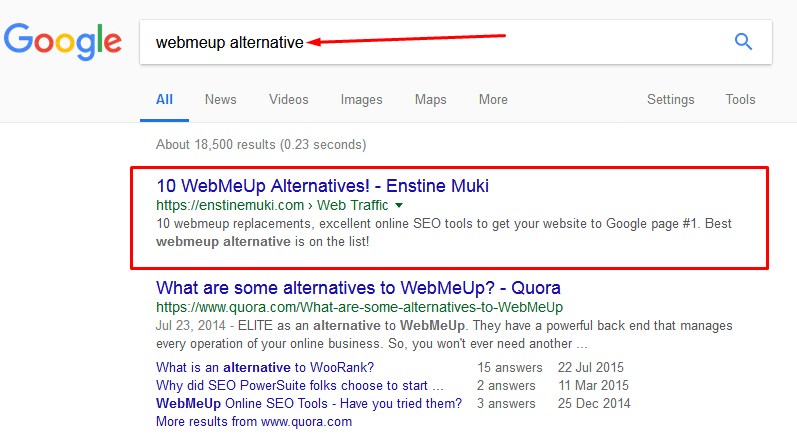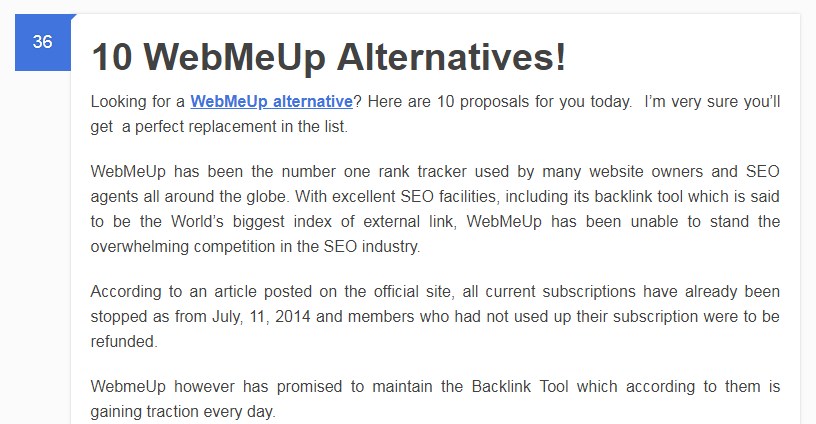Keyword anticipation is a new SEO technique to grab the first position on Google page one within a very short period. It is different from Keyword research and I will be helping you understand this very shortly.
My experience as an SEO blogger brought about me phrasing this technique. As a matter of fact, it is made up of two words:
- Keyword
- Anticipation
Keyword
In the business of SEO, a keyword is a word that searchers type in the search engine form each time they want some information. It’s like the key that opens the door to the information being searched. You can also refer to them as “search queries”
You’re often going to hear content marketers talk of Seed Keywords, Long Tail Keywords, LSI (Latent Semantic Indexing) keywords, search intent, etc. These are all keywords related terminologies.
Anticipation
This is the act of waiting eagerly for something you know is going to happen. It’s an Expectation or prediction or forecast.
So you may be right to take the following as synonyms of keyword anticipation:
- Keyword expectation
- Keyword prediction
- Keyword forecast.
Keyword Anticipation means taking advantage of current events, understanding human reaction to events and using the human vocabularies to form search engine keywords before time.
Past events made our lives of today. Today’s events make our lives of tomorrow.
New discoveries give birth to new terms. That’s how our vocabularies change with time. In the pre-Internet age when our grand Ma heavily used the snail mail system, the word E-mail was not known.
And just recently, before the coming of the smartphone technology, no one ever heard the word selfie. So you see how technological expansion adds new words to our dictionaries.
Facebook for instance has given anew meaning to the word like. Someone posts an image of an unfortunate incident, people click like. You post images of your wedding, folks still click like. Though the social giant has added new ways to express emotions, the like button is still the king
These tech developments are events. Folks react to these events by phrasing new words to describe them. With a smart mind, you can anticipate these new words, create content around them and seal your seat on Google page #1
One thing is sure: these new words are soon going to become search engine keywords.
My experience that brought about the new terminology in SEO: Keyword Anticipation!
I wouldn’t have come up with this if I hadn’t any success in what I did. I had a remarkable success and I believe anyone that does same will not be disappointed.
I know marketers have used this technique before. Just like Brian Dean who came up with the Skyscraper technique to describe something people have been doing. The technique is not new. But he gave it a sexy name.
 Few years back, an SEO company, WebMeUp decider to close its doors. Before that happened, I had written this review to promote the platform and was constantly checking it for updates.
Few years back, an SEO company, WebMeUp decider to close its doors. Before that happened, I had written this review to promote the platform and was constantly checking it for updates.
So when the news about its closure hit the market, I knew it was going to be a content opportunity. It occurred to me some of the users of the tool were going to be looking for alternatives.
Before the actual folding up of the company, I had created an article on WebMeUp Alternatives and that was the main keyword.
It didn’t take 1 hour for this article to be picked and ranked by Google on position #1.
- First, it wast the only article targeting that keyword. So competition was zero at the time
- Search volume at one point before the event was almost zero but there was an incredible spike shortly after the announcement.
- Before competition started struggling to rank for it, I was firmly sitting on the sweet spot.

- Competing companies rushed to my contact page to be part of the list of the 10 alternatives. It should be noted here that the initial list was published with just 4 alternatives. More were added as a result of other SEO firms contacting me to be added.
I have so far written about this technique on some blogs:
- Keyword Anticipation Vs Keyword Research. How can it boost your SEO [Guide]
- 2 SEO techniques to help you rank on Google page #1 guaranteed
- 5 things to do to increase your search engine traffic
It will be exciting to check these out and share your views on the comment section.
Have you used the technique before? what were your results?


Comments are closed.